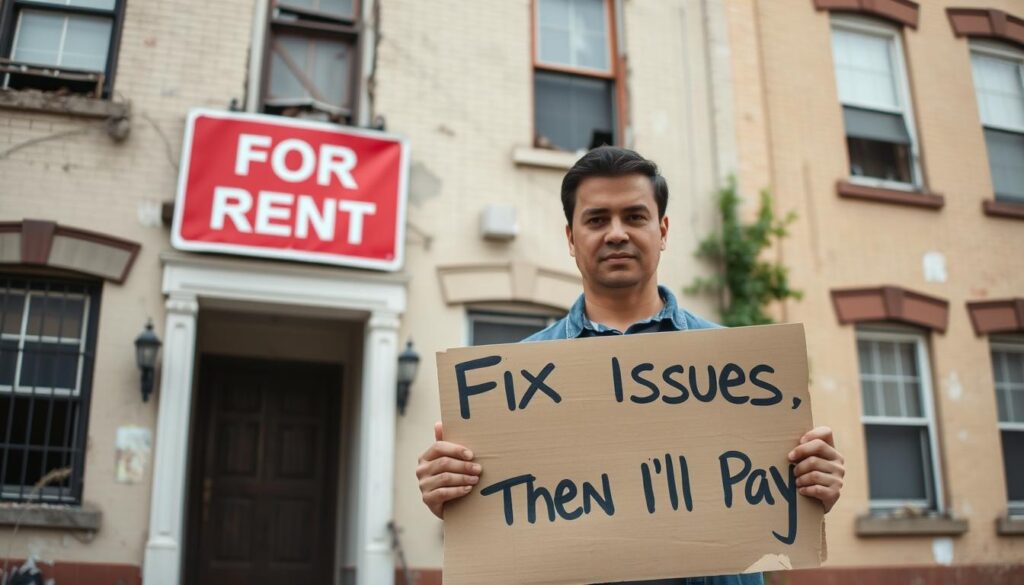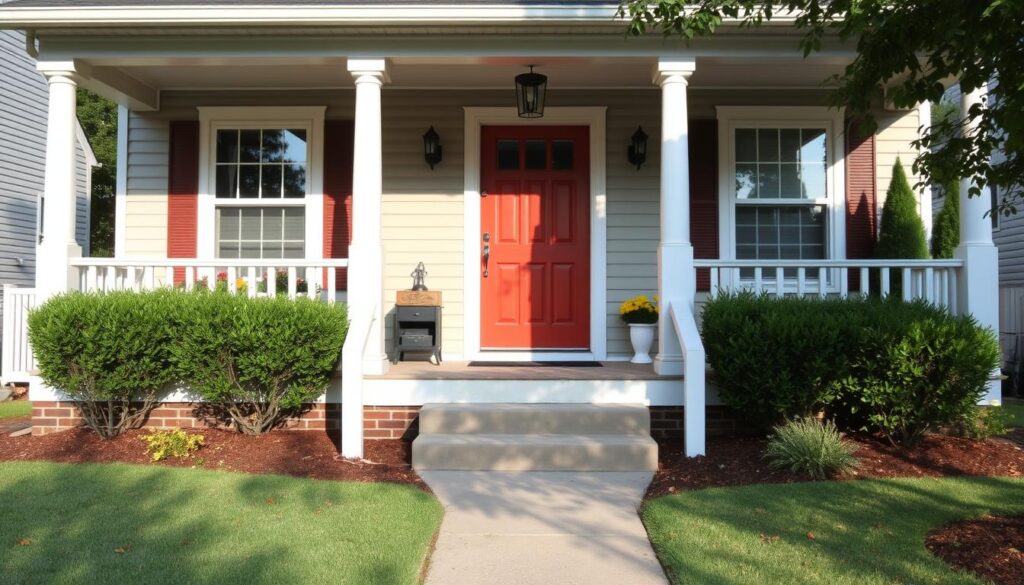Ah, the great outdoors. There’s nothing like getting some fresh air, especially when the weather is nice. But have you ever stopped to think about who is responsible for keeping up with the landscaping? If you’re a tenant, landlord, or realtor, it’s important to know the answer to this burning question. Keep reading to find out who is responsible for landscaping duties!
For many of us, “landscaping” conjures up images of pristine lawns, expertly trimmed hedges, and colorful flower beds. But the term actually encompasses a lot more than that. Landscaping can also refer to the process of maintaining or improving a piece of land -for example, by mowing the lawn, clearing away debris, or planting new trees and shrubs. In fact, anything that you do to make your property look more aesthetically pleasing can be considered landscaping. So whether you’re planning to install a new patio or simply want to keep your garden looking neat and tidy, we hope this guide will be of use. And who knows? With a little effort, you might just find yourself enjoying the satisfaction that comes with having the best-looking property on the block!
If you’re a property owner, then you know that first impressions are important. Your tenants will judge your property based on its curb appeal – and if it doesn’t look good, they may be hesitant to sign a lease. Luckily, there’s an easy way to boost your property’s curb appeal: invest in some landscaping.
A recent study by the National Association of Realtors found that 63% of homebuyers would be willing to pay more for a home with great curb appeal. That number jumps to 74% when we’re talking about millennials! So if you’re thinking about selling your property in the near future, now might be a good time to invest in some landscaping.
And even if you’re not planning on selling, remember that happy tenants are more likely to pay rent on time and take care of your property. So if you want to keep your property running smoothly, investing in some landscaping is a smart move.
But where do you start? And how much should you spend? If you’re feeling lost (no pun intended), don’t worry – we have some tips to help get you started. Check out our blog post on the subject for all the details.
According to law, the property owner is responsible for maintaining the landscaping and trees on their property. This includes trimming hedges, mowing lawns, and raking leaves. However, in some cases, these duties may be delegated to the tenant. For example, if you are renting a single-family home, it’s likely that the landlord will expect you to take care of the landscaping yourself. But if you live in an apartment complex, it’s more likely that the landlord will hire a professional landscaping company to take care of these tasks.
In some cases, the responsibility for landscaping may be written into the lease agreement. So if you’re not sure who is responsible for what, be sure to check your lease agreement before taking on any landscaping tasks. And if you’re a landlord looking to hire a professional landscaping company, we suggest doing your research beforehand to avoid any headaches down the road!
Tenants: As a tenant, you likely have a lot on your plate already. Between pay rent, keeping up with the laundry, and making sure your roommates don’t eat all the leftover pizza in the fridge, the last thing you need is another chore. But, as they say, nothing in life is free. And that includes your lovely apartment or house. Unless you’re lucky enough to have a property management company that takes care of yard work for you, typically, tenants are responsible for maintaining the yard in a clean and presentable state. This means mowing the lawn, trimming the hedges, and removing any dead leaves or debris. Basically, as long as the yard looks neat and tidy, you’re in good shape. Of course, if you have any questions about your specific duties, be sure to check your lease agreement. After all, it’s always better to be safe than sorry – especially when it comes to money.
Landlords: As the property owner, it is your responsibility to take care of any major landscaping tasks, such as tree trimming or stump removal. You may also be responsible for watering and fertilizing the lawn and planting new flowers or shrubs. Again, though, be sure to check your lease agreement or local ordinances to see what exactly is expected of you. In most cases, property management services will take care of these tasks for you, but they will likely charge you a fee for their services. If you decide to tackle the landscaping yourself, be sure to factor in the cost of materials and equipment into your budget. Also, keep in mind that taking on these tasks will take away from your free time, so be sure to weigh the pros and cons before making a decision.
Realtors: It’s always a good idea to be familiar with the ins and outs of landscaping responsibilities—you never know when a client will ask! In general, though, landlords are responsible for most of the major landscaping tasks while tenants are only responsible for maintaining the yard in a clean and presentable state. Of course, there are always exceptions to the rule and some landlords may include landscaping services in the price of rent while others may require tenants to pay for these services separately. However, in most cases, it is the landlord’s responsibility to keep the property well-maintained and attractive so that it continues to attract high-quality renters who are willing to pay top dollar for the privilege of living there.
Here are some tips for property landscaping:
- Make sure that you have the right tools and materials for any landscaping project. Before you embark on any landscaping project, it’s important to make sure that you have the right tools and materials. Otherwise, you could end up spending more money than you need to or causing damage to your property. For example, if you’re planning to do some gardening, you’ll need to purchase a variety of plants, potting soil, fertilizer, and other supplies. And if you’re thinking of painting your house, you’ll need to buy paint, brushes, and drop cloths. Of course, if you’re not planning on doing any work yourself, you can always hire a professional property management company to take care of everything for you. But regardless of how you choose to handle your landscaping project, make sure that you have the right tools and materials before getting started.
- Hire professional landscapers if necessary. If you’re like most people, you probably don’t spend a lot of time thinking about your lawn. However, the truth is that a healthy lawn can play an important role in the overall appearance of your property. If you’re a homeowner, a well-manicured lawn can help to increase the value of your home. If you’re a renter, a neatly trimmed lawn can help to persuade your landlord to lower your rent. In either case, it’s worth considering hiring professional landscapers to take care of your lawn. Not only will they have the knowledge and experience to ensure that your lawn looks its best, but they can also save you a lot of time and hassle. In the end, it’s up to you to decide whether the benefits of professional landscaping are worth the cost. But if you’re looking for a way to improve the appearance of your property, it’s definitely worth considering.
- Consult with your property manager or landlord before starting any projects. Before you start any projects on your rental property, it’s important to consult with your property manager or landlord. They may have specific requirements or restrictions that you need to be aware of. For example, they may require you to get permission before making any changes to the property. Or, they may charge a fee for certain services. It’s also important to keep in mind that, as a tenant, you are responsible for paying rent and following the terms of your lease agreement. So, if you’re planning a major renovation, you may need to add an additional month or two onto your lease agreement. By taking the time to consult with your property manager or landlord before starting any projects, you can avoid potential problems down the road.
- Have a plan for how you want the property to look. Are you looking for a property management company that can help you with your rental property? If so, you’ll want to make sure that you have a plan for how you want the property to look. After all, you’re going to be paying rent for the property, and you’ll want to make sure that it’s in good condition. The best way to do this is to hire a property management company that can provide you with the services you need. They’ll be able to help you with everything from finding tenants to paying rent and keeping the property in good condition. So if you’re looking for a way to save money on your rental property, make sure that you have a plan for how you want it to look.
- Follow local regulations and codes when making changes to the property’s landscaping. When it comes to making changes to the landscaping on your property, it’s important to follow local regulations and codes. After all, you don’t want to end up paying a hefty fine! But more importantly, following the rules helps to ensure that your property is well-maintained and attractive to potential renters. After all, who wants to live in a place that looks like it’s been neglected? By working with a professional property management company, you can be sure that your property rent will stay competitive and that your property will be well-cared for. So don’t take chances – make sure to follow the rules when it comes to landscaping on your rental property.
- Make sure that you keep the lawn mowed and trimmed on a regular basis. As any renter knows, one of the most important obligations of tenancy is to keep the property well-maintained. This includes everything from regularly cleaning common areas to mowing the lawn and trimming the hedges. While some landlords include lawn care in their property management services, many tenants are responsible for maintaining their own yards. Fortunately, there are a few easy tips that can help to keep your lawn looking its best. First, make sure to mow on a regular basis – at least once a week during the growing season. Second, take the time to edge along sidewalks and driveways. Finally, don’t forget to fertilize and water regularly. By following these simple tips, you can make sure that your lawn stays green and healthy – and that your landlord stays happy.
- Be aware of any hazardous materials or conditions when working with landscaping materials. As a renter, it’s important to be aware of any hazardous materials or conditions when working with landscaping materials. Not only could you potentially harm yourself, but you could also damage the property and be held responsible for the repairs. If you’re not sure what you’re doing, it’s always best to consult with a professional or ask your property management for guidance. After all, you don’t want to wind up having to pay for somebody else’s mistake. So take care when handling landscaping materials and always err on the side of caution. Your property manager will thank you for it – and so will your bank account.
- Consider investing in landscaping treatments to ensure that the property looks its best all year round. As any property owner knows, one of the most important things you can do to ensure your property is well-maintained is to invest in landscaping treatments. Not only will this make your property look its best, but it will also help to keep it in good condition all year round. In addition, by investing in landscaping treatments, you can also help to improve the value of your property. If you’re looking for a way to make sure your property is always looking its best, consider investing in landscaping treatments. With the help of a professional property management company, you can easily find the right treatments for your property and keep it looking its best all year round.
- Be mindful of how you dispose of any landscaping materials that you use. If you’re like most people, you probably don’t give much thought to how you dispose of your landscaping materials. However, it’s important to be mindful of how you dispose of any materials that you use on your property. If you’re not careful, you could end up damaging your property or even violating your lease. That’s why it’s always a good idea to check with your property management company before you dispose of anything. They can advise you on the best way to dispose of your materials and make sure that you’re in compliance with your lease. So next time you’re ready to get rid of those old flower pots or landscape pavers, make sure to give your property management company a call first. It’ll save you a lot of hassle in the long run.
- Ensure that any changes to the property are in line with the lease agreement. As a tenant, it’s important to be mindful of any changes you make to the property you’re leasing. Even something as small as putting up a new picture or painting a wall can be a violation of your lease agreement. Before making any changes, be sure to check with your property management company first. They can let you know what is and isn’t allowed under the terms of your lease. And while you’re at it, be sure to pay your rent on time! Property management companies are typically pretty lenient when it comes to small changes, but they won’t hesitate to take action if rent is late or if there are more serious violations of the lease agreement. So play it safe and make sure any changes to the property are approved by your property management company before you go ahead and make them.
Landscaping is one of those things that’s often taken for granted. We all know it’s there, but we don’t necessarily think about it on a day-to-day basis. However, when it comes to who is responsible for maintaining the landscaping and trees, that’s a different story. The short answer is that it depends. In most cases, the responsibility falls on the property owner. However, there are exceptions to this rule. For example, if you’re renting a property, the responsibility for landscaping may be delegated to the tenant. If you’re unsure about who is responsible for what, be sure to check your lease agreement or consult with a professional. At the end of the day, the best way to avoid any confusion is to simply ask. After all, knowledge is power!
Tags:
landscaping responsibility,responsible irrigation,responsible,responsible lawn care,landscaping at property,landscaping maintenance,sustainable landscape,landscape design,landscape photography,responsibility,landscape






